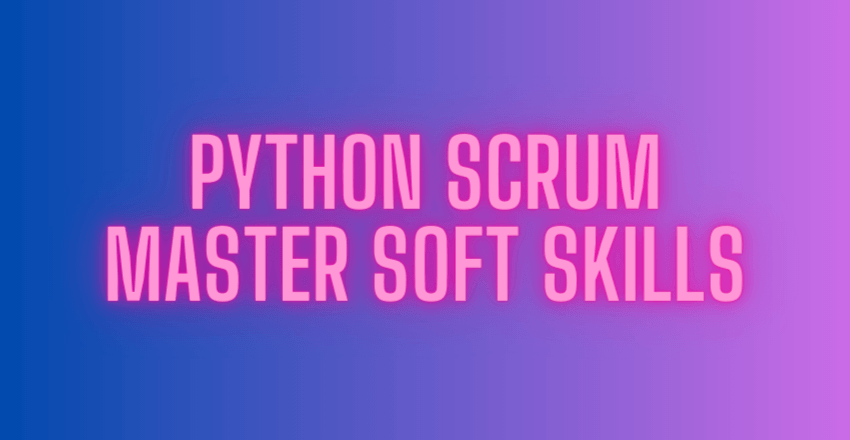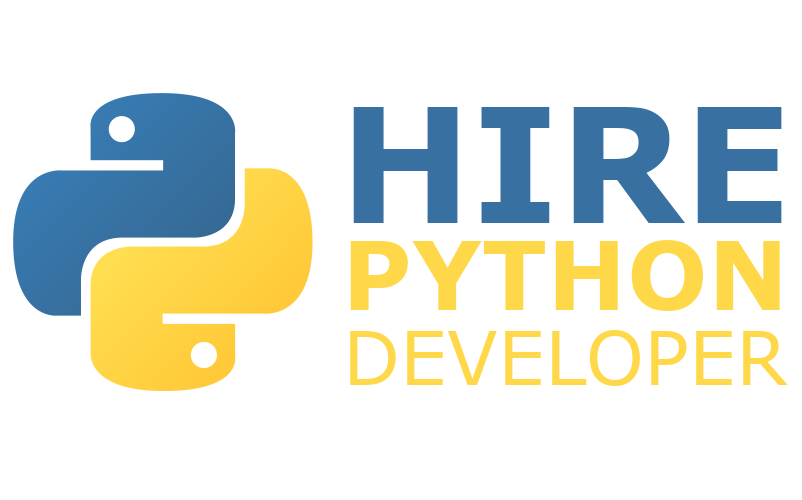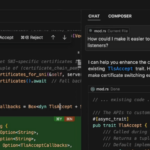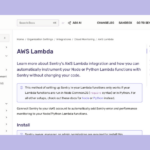Ever wonder what skills a Python Scrum Master needs? Let’s take a chronological journey through the key milestones in the life of a Python Scrum Master and explore the must-have skills at each stage.

Starting Point: Coding Skills
Key Takeaway: Not all Scrum Masters require coding skills, but knowing Python offers an edge.
In the early stages, a grasp of Python proves beneficial. While Scrum Master coding skills aren’t always necessary, understanding the language your team uses can help bridge the gap between technical and non-technical realms.
Example: A Scrum Master familiar with Python can better appreciate the challenges developers face and assist in problem-solving.
Pro Tip: Even if you aren’t writing code, take time to learn the basics. It will enhance your communication with the team.
Pros: Better communication, deeper understanding, more effective problem-solving.
Cons: Requires additional learning, can blur the boundary between Scrum Master and developer roles.
Milestone One: Scrum Framework Proficiency
Key Takeaway: Mastery over Scrum framework is the most useful skill for a Scrum Master.
Moving forward, proficiency in the Scrum framework forms the bedrock of effective Scrum Mastership. You must comprehend the principles, values, and practices of Scrum, and know how to implement them in a team setting.
Example: If a team member is uncertain about Scrum roles or practices, as Scrum Master, you should clarify and guide them.
Pro Tip: Regularly revisit the Scrum Guide and stay updated with the latest changes and interpretations.
Pros: Ensures effective Scrum adoption, enhances team productivity and product quality.
Cons: Requires continuous learning and adaptation.
Milestone Two: Soft Skills

Key Takeaway: Soft skills are crucial for a Scrum Master, especially communication, leadership, and problem-solving skills.
As you navigate your Scrum Master journey, soft skills become increasingly important. Effective communication ensures everyone stays on the same page, while leadership keeps the team motivated and focused. Problem-solving skills help in overcoming hurdles that may arise during the sprint.
Example: If a team member is struggling with a task, a Scrum Master with good problem-solving skills can help them find a solution.
Pro Tip: Regularly practice active listening and empathy. These are critical for effective communication.
Pros: Enhances team morale, ensures smooth operation, fosters a positive working environment.
Cons: Soft skills take time and effort to develop and improve.
Milestone Three: Technical Mastery
Key Takeaway: A Scrum Master’s technical skills can be a boon, but they’re not always a necessity.
While you don’t need to be a coding wizard, understanding the technical challenges your team might face can prove useful. Knowledge of other programming languages, in addition to Python, can broaden your perspective.
Example: If your team is integrating Python with Java, understanding both can help you better support the team.
Pro Tip: Familiarize yourself with the programming languages and tools your team is using.
Pros: Better support for the team, improved problem-solving capabilities.
Cons: Might lead to scope creep, as you’re not supposed to directly involve in coding tasks.
Milestone Four: Agile Coaching
Key Takeaway: Agile coaching is a critical skill that enables Scrum Masters to guide their teams toward Agile maturity.
As a Python Scrum Master, one crucial skill is Agile coaching. This role extends beyond the confines of the Scrum team, helping the broader organization understand and adopt Agile principles.
Example: As an Agile coach, you could conduct workshops to educate stakeholders about Agile and Scrum, promoting an Agile mindset across the organization.
Pro Tip: To be an effective Agile coach, focus on enhancing your own understanding of Agile methodologies beyond Scrum, such as Kanban or Lean.
Pros: Fosters an Agile mindset across the organization, facilitates broader Agile transformation.
Cons: Demands extensive knowledge of various Agile methodologies, requires strong teaching and mentoring skills.
Milestone Five: Conflict Resolution

Key Takeaway: Conflict resolution is a necessary skill for Scrum Masters as it helps maintain team harmony and productivity.
Another critical skill for a Python Scrum Master is conflict resolution. Conflicts are inevitable in any team. As a Scrum Master, your role is to mediate and help find a resolution that benefits the team and the project.
Example: If two team members have differing views on how to implement a feature, a Scrum Master with good conflict resolution skills can facilitate a discussion to find a solution that everyone agrees on.
Pro Tip: Keep a neutral perspective and focus on the problem, not the person. Create an environment where everyone feels heard and respected.
Pros: Helps maintain team harmony, ensures smooth operation of the Scrum team.
Cons: Requires high emotional intelligence, can be stressful to handle high-stakes conflicts.
Milestone Six: Organizational Change Management
Key Takeaway: Organizational change management is a skill that allows Scrum Masters to facilitate changes that improve the organization’s Agile maturity.
In the later stages of a Python Scrum Master’s career, you may need to facilitate organizational changes that enhance the adoption and effectiveness of Agile practices.
Example: You might spearhead the implementation of an enterprise Agile framework such as SAFe (Scaled Agile Framework) or LeSS (Large Scale Scrum) to facilitate multi-team coordination.
Pro Tip: To be effective in organizational change management, develop a strong understanding of various enterprise Agile frameworks and change management principles.
Pros: Enhances the organization’s Agile maturity, facilitates large-scale Agile transformation.
Cons: Requires deep understanding of enterprise Agile frameworks, needs strong leadership and persuasion skills.
Final Destination: Continuous Improvement
Key Takeaway: A Scrum Master’s journey is about continuous learning and improvement.
Reaching the role of Scrum Master doesn’t mean the journey ends. The Scrum field is dynamic, with new practices and tools emerging regularly. To be effective, you should always seek to learn and improve.
Example: Regularly attend workshops, webinars, and other learning opportunities.
Pro Tip: Don’t be complacent. Always keep an eye out for opportunities to learn new things and improve existing skills.
Pros: Stay relevant, continue to grow professionally, remain effective in your role.
Cons: Requires time and commitment to continuous learning.
In Summary
Becoming a successful Python Scrum Master isn’t a one-stop journey, but a continuous path of growth and learning. From grasping Python and the Scrum framework, honing soft skills, to understanding other programming languages, and committing to continuous improvement, each stage builds on the previous one, making you more effective in your role.
A Scrum Master’s resume often reflects this journey, highlighting technical skills, Scrum proficiency, and a commitment to continuous learning. Many organizations also use a Scrum Master skills matrix to assess the capabilities of their Scrum Masters.
Remember, a great Scrum Master combines three attributes: knowledge, leadership, and empathy. Regular assessment of your skills and areas for improvement will help you grow in your role and guide your team more effectively.
So, are you ready to embark on this journey? Remember, becoming a Python Scrum Master is not a sprint, but a marathon. Take one step at a time, and you’ll get there.
Matthew is a technical author with a passion for software development and a deep expertise in Python. With over 20 years of experience in the field, he has honed his skills as a software development manager at prominent companies such as eBay, Zappier, and GE Capital, where he led complex software projects to successful completion.
Matthew’s deep fascination with Python began two decades ago, and he has been at the forefront of its development ever since. His experience with the language has allowed him to develop a keen understanding of its inner workings, and he has become an expert at leveraging its unique features to build elegant and efficient software solutions.
Matthew’s academic background is rooted in the esteemed halls of Columbia University, where he pursued a Master’s degree in Computer Science.
As a technical author, Matthew is committed to sharing his knowledge with others and helping to advance the field of computer science. His contributions to the scientific computer science community are invaluable, and his expertise in Python development has made him a sought-after speaker and thought leader in the field.







